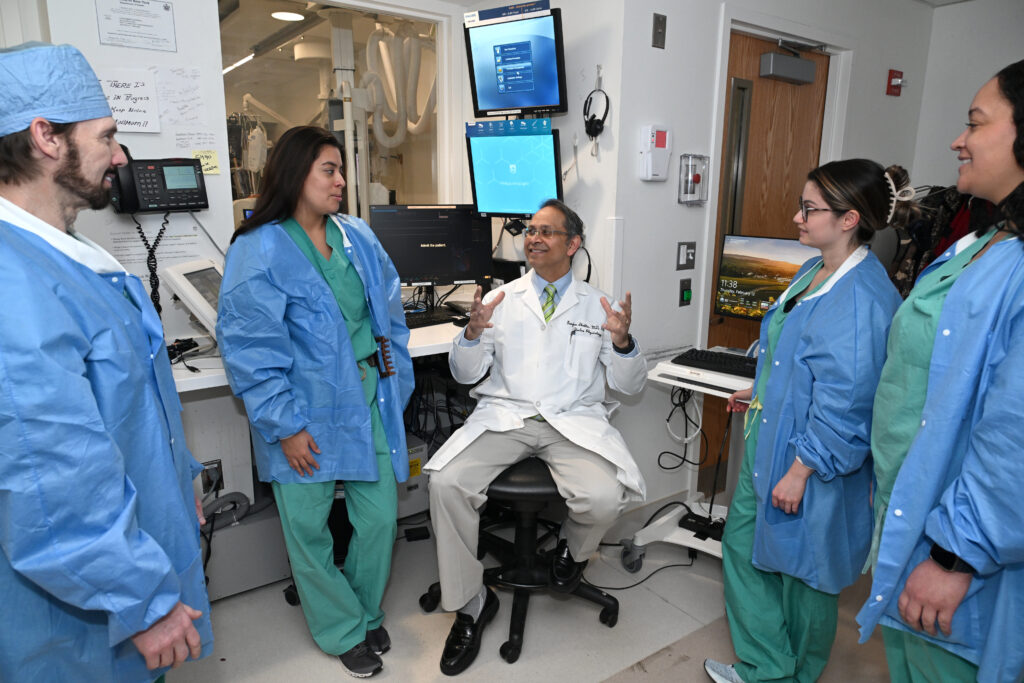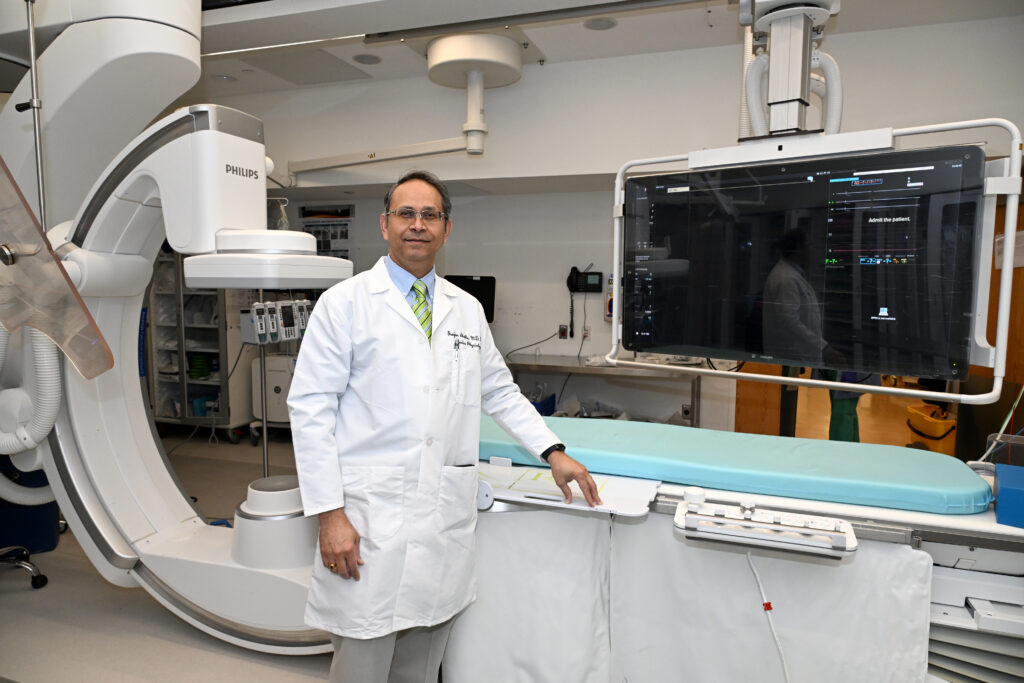For the millions of Americans with atrial fibrillation (AFib), preventing stroke often means a lifetime of blood thinners. But these medications can bring unwanted complications, including bleeding risks, dietary restrictions and constant monitoring. Now, a quarter-size innovative implant is offering many WMCHealth patients’ freedom from blood thinners while maintaining crucial stroke protection.

“Having performed hundreds of successful procedures with the implant, our team at WMCHealth has seen remarkable improvements in our patients’ quality of life,” explains Gunjan Shukla, MD, FHRS a cardiac electrophysiologist at WMCHealth’s Good Samaritan Hospital. “For many people, being able to stop taking blood thinners means greater peace of mind and more freedom in their daily activities.”
Understanding AFib and Stroke Risk
In AFib, irregular beating of the heart’s upper chambers allows blood to pool in the left atrial appendage (LAA), potentially forming clots that can trigger strokes. While blood thinners help prevent these clots, they aren’t suitable for everyone.

“Blood thinners work well for many patients, but some face too high a bleeding risk,” explains Dr. Shukla. “The WATCHMAN implant provides these patients with effective stroke prevention without long-term anticoagulation.”
A Proven Solution
This umbrella-shaped device is placed in the LAA through a catheter-based procedure. Once positioned, it seals off the appendage, preventing blood pooling and clot formation. Heart tissue gradually grows over the device, permanently closing the LAA. Most patients can stop taking blood thinners immediately and start taking antiplatelet agents like Aspirin and Plavix for 6 months followed by Baby Aspirin daily after that.
“The procedure takes about an hour,” says Dr. Shukla. “Patients typically spend just one night in the hospital and return to their normal activities within days.”
Who is an Ideal Candidate?
The WATCHMAN device may be appropriate for individuals who:
- Have AFib not caused by a heart valve problem
- Face increased stroke risk
- Experience bleeding complications from blood thinners
- Have lifestyle factors making blood thinners risky (frequent falls, high-risk occupations)

With thousands of successful procedures nationwide and hundreds performed at Good Samaritan Hospital, and across the WMCHealth Network, the WATCHMAN’s track record speaks for itself. “I’ve seen patients transform from frequent hospital visits due to bleeding complications to living normal, active lives after undergoing this procedure,” says Dr. Shukla.
For AFib patients seeking alternatives to blood thinners, the WATCHMAN offers effective stroke prevention with reduced complications. Dr. Shukla encourages patients concerned about stroke risk or blood thinners to discuss this option with their healthcare provider.
To learn more, visit our website or call 866.WMC.HEART.
